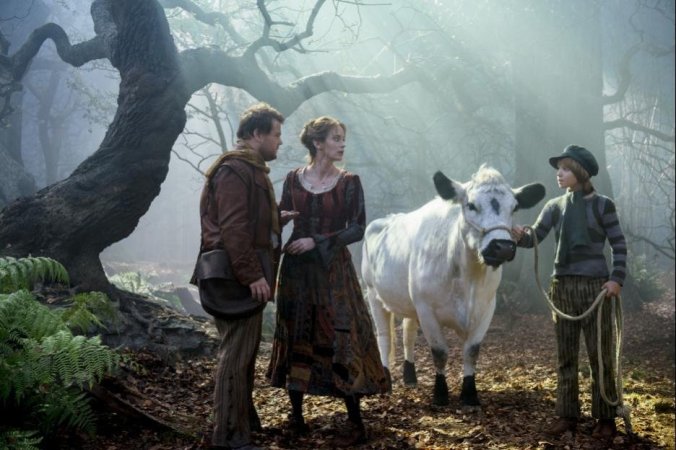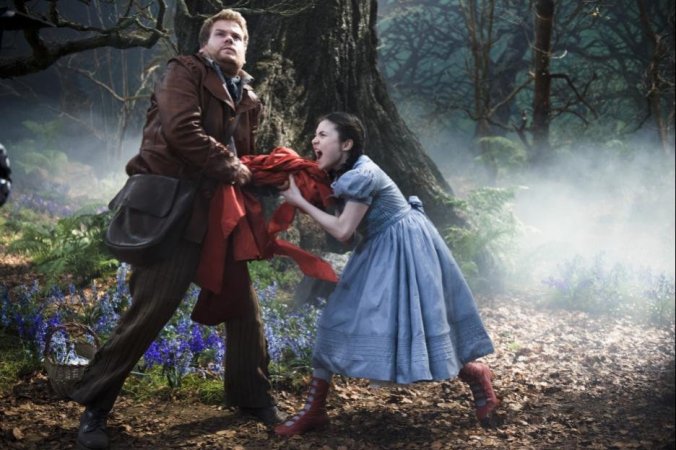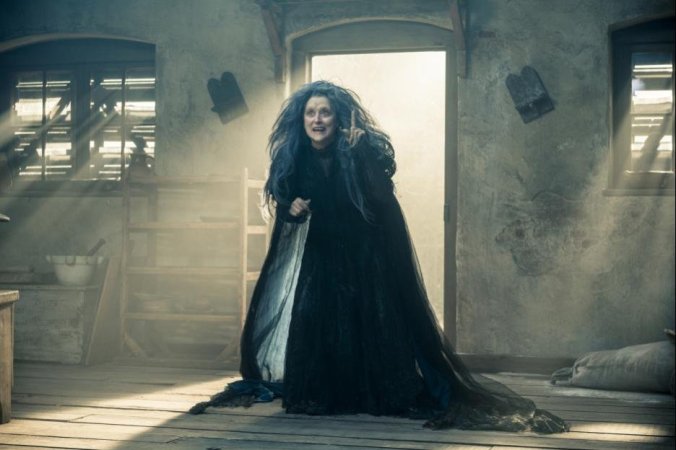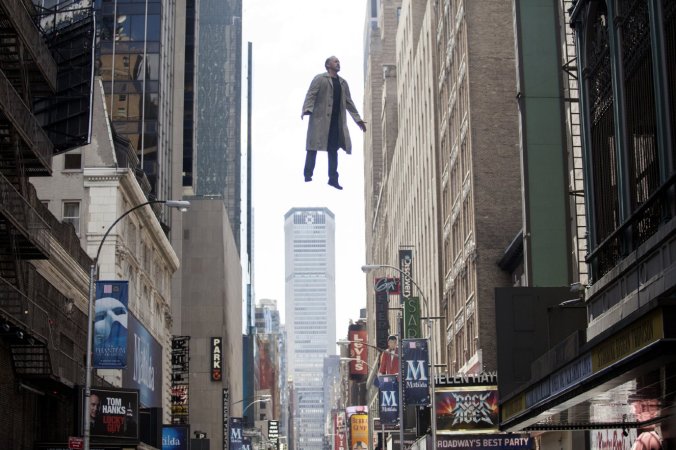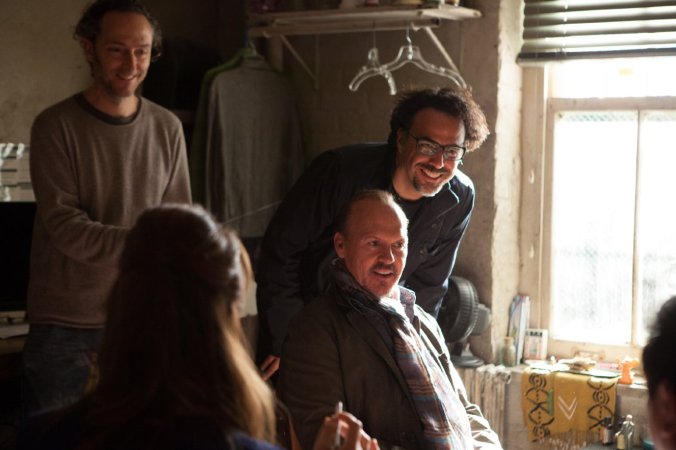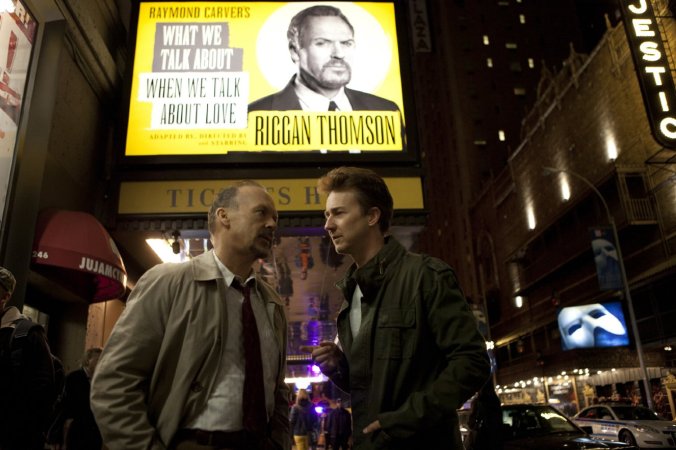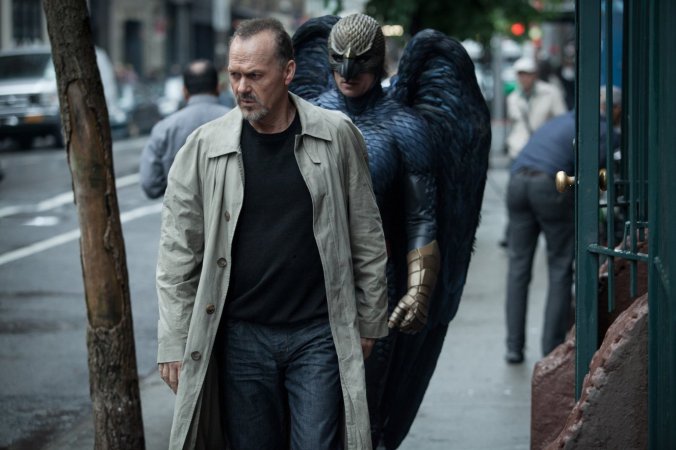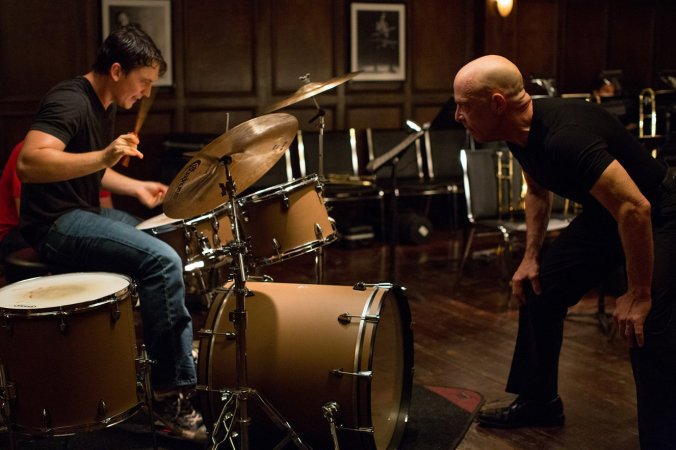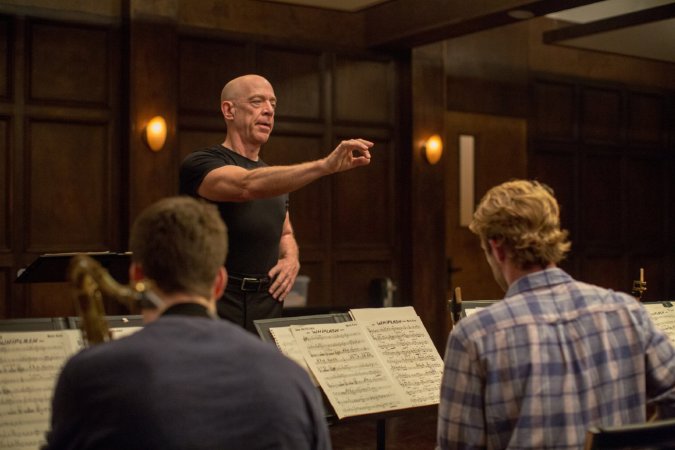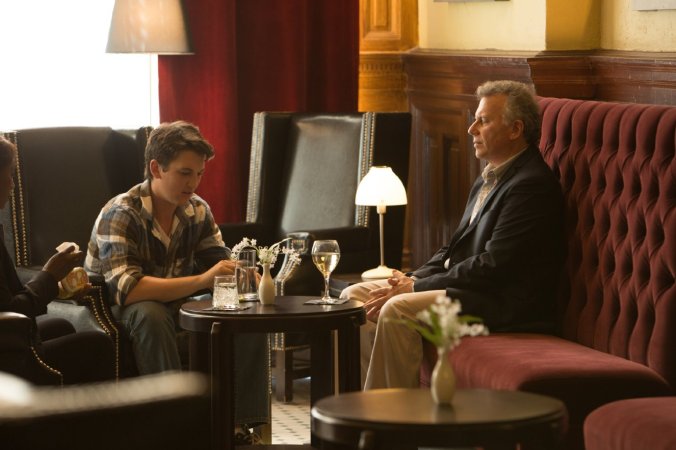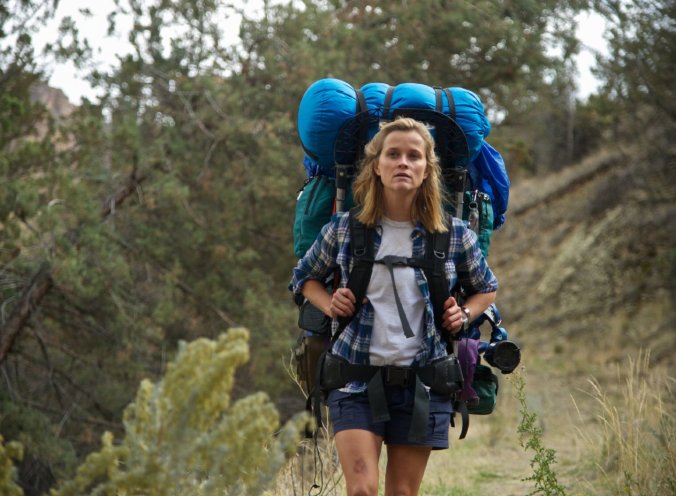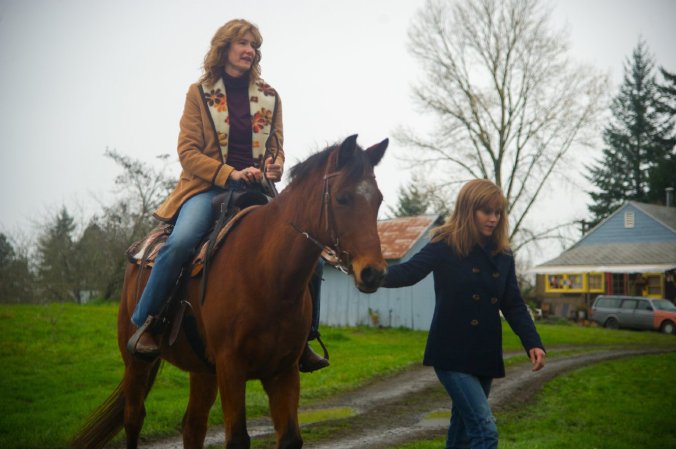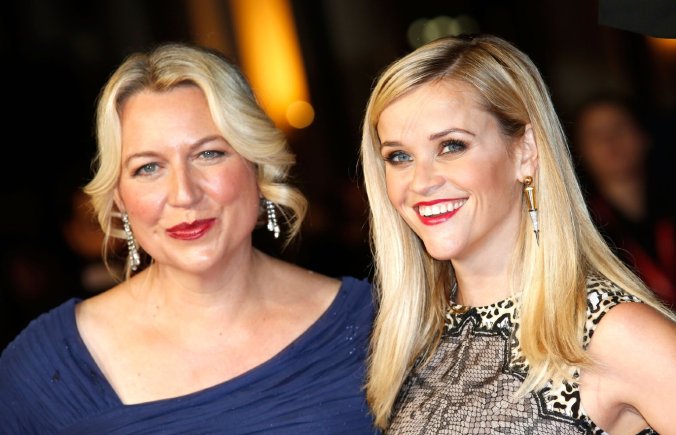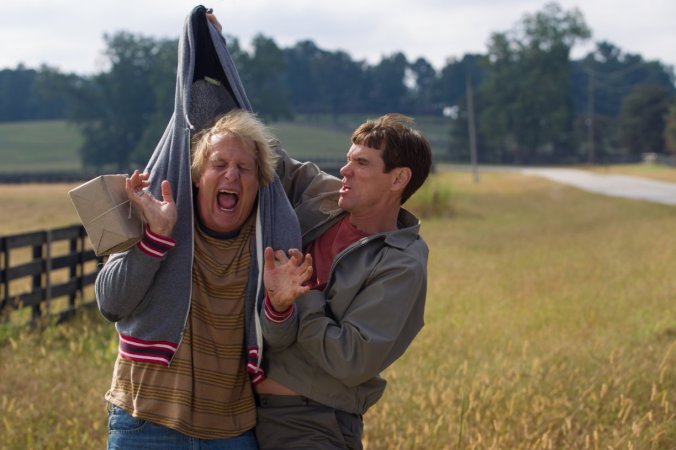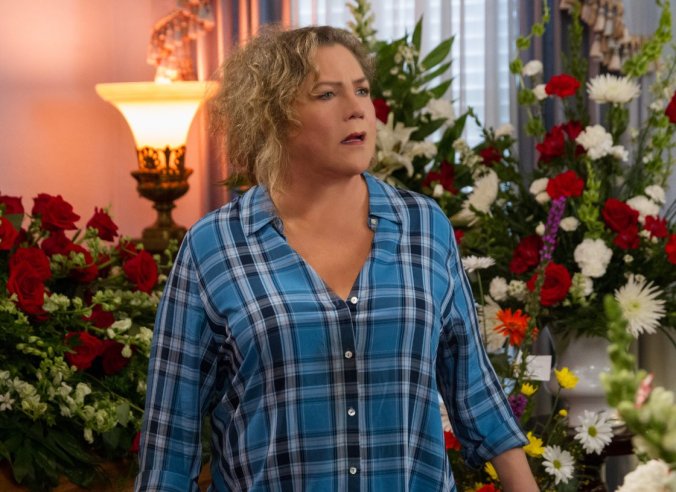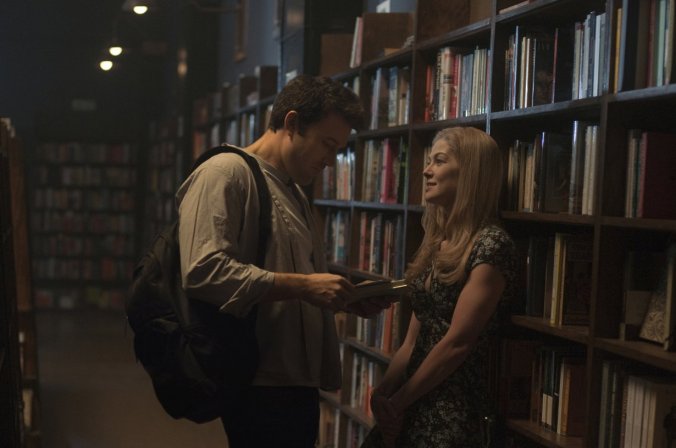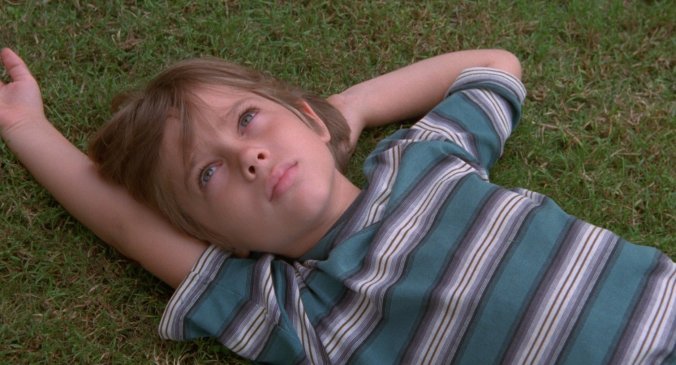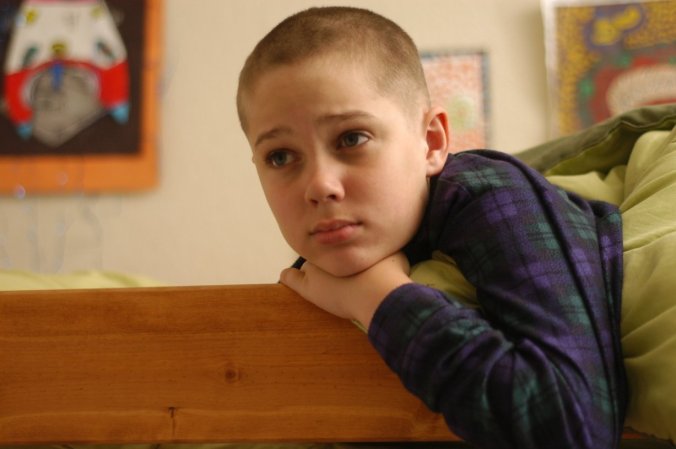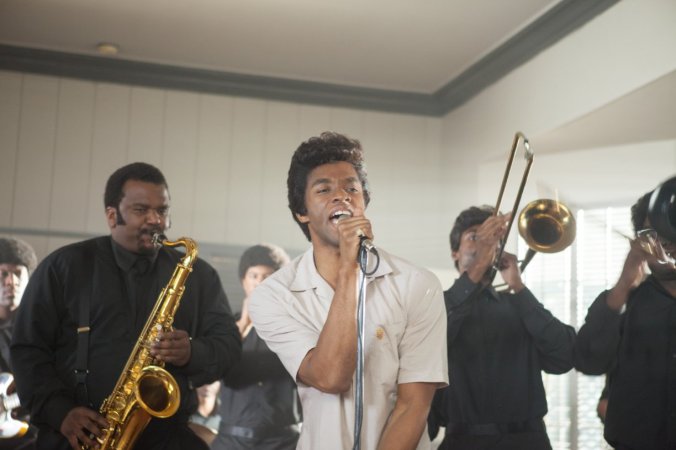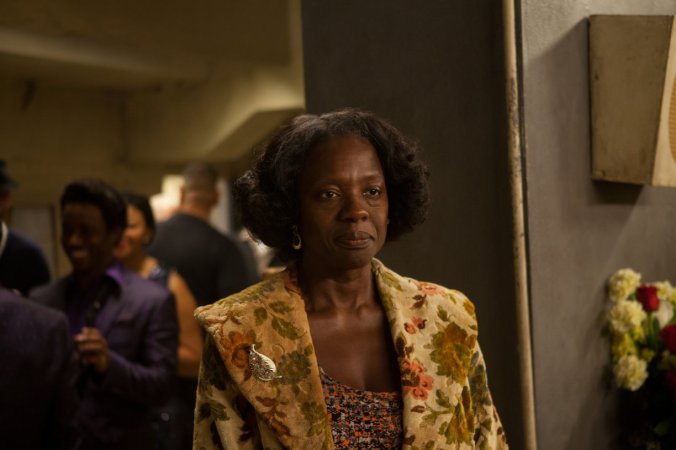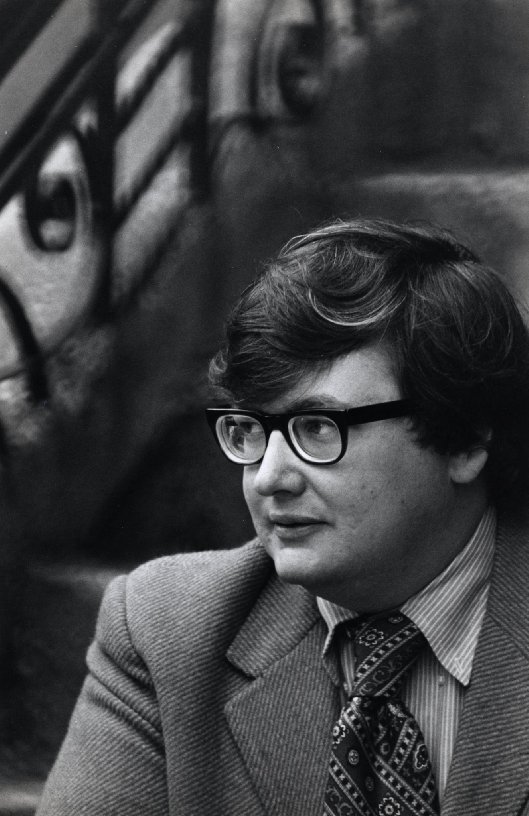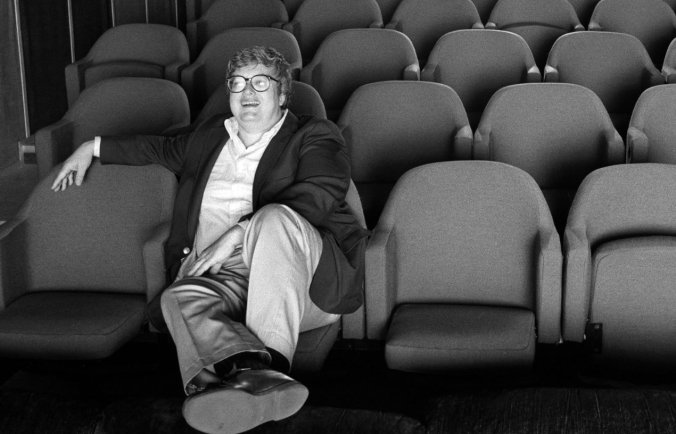By reteaming with her director from “Bridesmaids” and “The Heat,” McCarthy scores for the third time as a CIA agent who blossoms (with a lot of laughs) on her first field assignment with a little help from her friends and enemies.
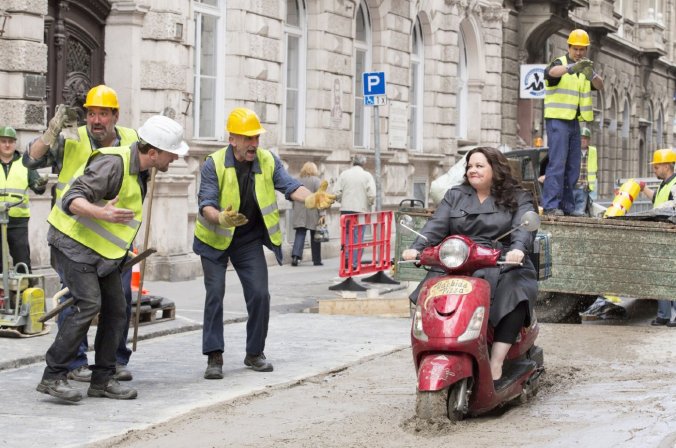
In one of the more expected moments Susan Cooper (Melissa McCarthy) tries to get her man but gets oh-so stuck in cement in “Spy.”
As someone who had to push past Hollywood’s unbelievable standards of success, much less beauty, against all odds, Melissa McCarthy has managed built a big-screen career out of characters whom others foolishly underestimate, and in her latest role of CIA agent Susan Cooper in “Spy” proves very little has changed.
“Spy,” represents McCarthy’s latest team-up with director Paul Feig (who also wrote the script), and it manages to take the actress’ particular set of skills to its broadest canvas yet, allowing her to globe-trot from the states to Paris to Rome to Budapest as an agent who surprises not just those around her but also herself with her adeptness in the field, which puts her physical prowess with her ability to adapt to any ridiculous situation on high alert.
Here’s the Backstory You’ll Need to Know, But Not Really
In the very first scene, Susan Cooper, who is a ten-year vet at the agency, has been content to languish in the rodent-infested basement at Langley, where she’s been the eyes and ears (and deep down inside swoons over) of Bradley Fine (Jude Law), a suave super-spy who Britishness comes in and out throughout every scene he’s in, as he blithely shoots and quips his way through dangerous situations, only thanks to Susan’s guidance via-the CIA’s super satellites.
When arms dealer Rayna (a delectably bitchy Rose Byrne, who literally steals ever scene she’s in) reveals she knows the identities of all the CIA’s top agents in the field, it is then left our poor Susan who apparently is the only one who is “unknown” enough who can track down the woman who’s intent on selling a rogue nuke to the nefarious crime boss DeLuca (Bobby Cannavale, who is Byrne’s real life boyfriend if anyone cares, plays the role like he’s in a Goodfellas spoof from the 90’s). But despite her skill with a headset and a computer screen, Susan still gets zero at Langley; her deadpan boss (Allison Janney, playing the tough talking straight-laced woman to the hilt here) gives her a series of frumpy undercover identities (“I look like someone’s homophobic aunt,” laments Susan), and even her cool spy gadgets are disguised to look like stool softener, toe-fungus spray and hemorrhoid wipes. Susan’s orders are to track and report at a distance, but of course she winds up a little too getting up close and personal with Rayna. (Would there be a plot the movie if she didn’t?) Their relationship consists of them taking turns being nastily dismissive of each other, and McCarthy and Byrne’s scenes together are cruelly hilarious, with the kind of no-holds-barred insult humor that makes you instinctively drop your jaw and cover your mouth at the same time laugh out loud.
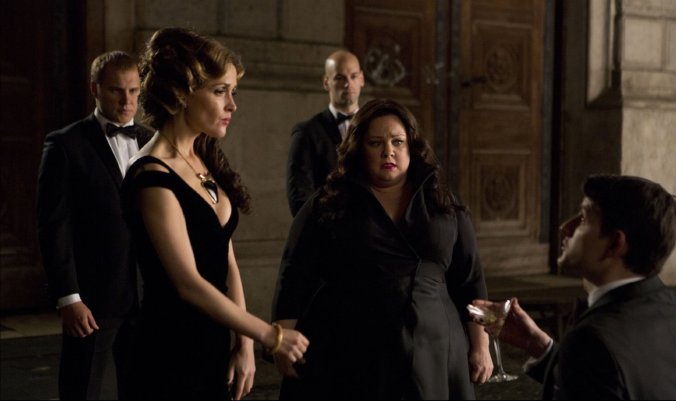
McCarthy’s “Agent Cooper” and Byrne’s arms dealer “Rayna” are a double crossing duo that become a surprising highlight of “Spy.”
Credit must be given to Feig who takes the spy story just seriously enough to keep us engaged (although he could probably have put Susan onto the playing field five or ten minutes earlier in his script) while also giving McCarthy a surprisingly high number of sharp comic foils you’d never expect to be foils. Besides Byrne and Janney, she also gets to play off Jason Statham (as a fellow spy Ford who refuses to take her seriously — to Susan’s credit, she never backs down from his bullying, even at most occasions he’s doing it because he too eager to take the lead), Miranda Hart (who steals every scene she’s in by playing one of Susan’s snarky CIA coworkers in the basement who in essence becomes he eyes and ears in the same way Susan was to Law’s character), and Peter Serafinowicz (as handsy Italian agent Aldo, whom were not exactly sure if he’s really one of the good guys or it’s all just an act). These roles also make me think that we are supposed to believe that quite a number of CIA agents are apparently foreigners. “Spy” is thankfully freed from the PG-13 shackles of most straightforward spy movies, the movie actually offers up more blood and vivid violence than the genre it’s tweaking, but credit again must be given to the deft handling of that so it’s never enough violence gets in the way of the actual comedy. If anything, the occasional mayhem reminds us of the danger Susan’s putting herself in while also underscoring how ridiculously over the top many of “Spy’s” contemporary espionage dramas whose intention is to spoof have actually become.
Here’s the Bottom Line
“Spy” would be a true standout if only for its ability to keep me laughing while also keeping me from figuring out who was really double-crossing whom. Add to that this extraordinary ensemble of actors (wow, who knew Statham could be this funny while sending up the version of himself he tends to play in his other movies?), and you’ve got another memorable offering from McCarthy and Feig. Underestimate them at your peril people! I know I sure won’t in the future. As a distaff version of James Bond in “Spy,” Hollywood’s reigning empress of ha-ha McCarthy has a license not just to kill the audience with laughter but also to slay us with her acting chops. And it’s a bust-a-gut thing of beauty to watch her give a wholly satisfying lead performance with a complete dramatic arc. All you have to do is observe how her eyes dramatically moisten in reaction to her top-notch co-stars in ways that would make any silent screen movie star proud. That’s even if her lips are spewing a scathing string of inappropriate R-rated putdowns, which I actually did love most of the time. Like when she tells a stunned Swedish henchman to cut off his own manhood and stick it on his forehead like a unicorn’s horn, or accidentally mistakes a mushroom-like hot towelette for an appetizer while dubbing her fists Cagney and Lacey. It proves how Feig and company can take the vinegar out of all the macho grandstanding and chauvinistic attitudes ingrained in the spy genre. That would also include Cooper’s observation that Ford’s tweed cap makes him look as if he is from the cast of “Newsies” (Always bringing it back to Broadway makes that my favorite line of the film!) I could have done without the stereotypical sexist come-ons by Aldo, who mainly wants to protect Cooper’s breasts. Although Hart’s Nancy does take a random detour to get to hang with rapper 50 Cent (give credit to a cameo that pays off better than one would actually think).
After her misbegotten turn last summer as a down-on-her-luck sad sack in “Tammy” left even the most fervent fans worried that the actress had lost her movie star mojo [although her supporting part in “St. Vincent” (which I personally liked but didn’t love) provided some solace], it is gratifying to see her back in the arms of her best collaborator—director Feig. The man behind her breakout in “Bridesmaids” and her blockbuster pairing with Sandra Bullock in “The Heat” also steps up his game (although his random cameo when he inexplicably walks into a hotel room door doesn’t help anything but I assume his ego). He doesn’t just shoot off a random round of in-jokes and sight gags a la “Austin Powers”-style, he also provides a decent if convoluted espionage plot—complete with tense action sequences, a surprising twist and 007-inspired opening credits—while spiked with a high percentage of gags that actually do succeed.
Most of the pleasure is derived from observing McCarthy’s sweet if insecure Susan Cooper grow from CIA analyst stuck working in a dank vermin-infested bunker to a highly skilled undercover sleuth seeking the whereabouts of a stolen nuke. She is equally at ease with posing as a Midwest cat lady or engaging in hand-to-hand battle a la Jackie Chan against a female assailant in a confined kitchen space by employing baguettes, frying pans and lettuce as lethal weaponry. I like the fact that the film actually plays up Cooper’s frumpiness (much to her constant chagrin) and inexperience in the role of a so-called spy, and I appreciate that her being thrown in the deep end as an agent was’t exactly out of left field as it potentially could have been if the film had an even more convoluted plot.
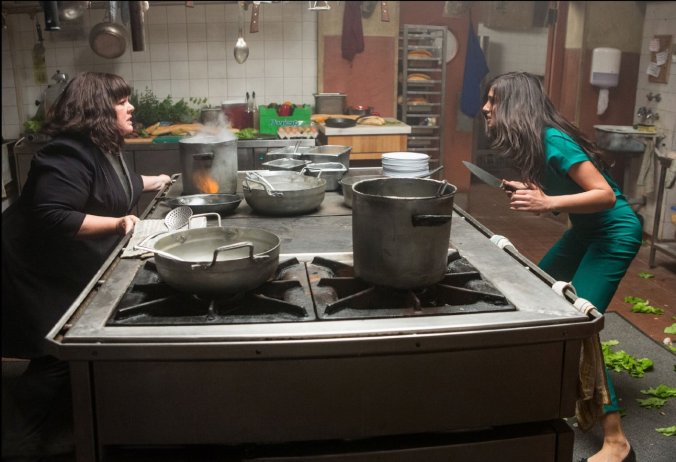
One of the more intense scenes of “Spy” features plenty of action and a lot of obvious stunt doubles. Not that there’s anything wrong with that.
All is not perfect, however. Having a male land atop a woman in an awkward position is sort of amusing once but not twice. And, as was the case with Feig’s “The Heat,” an excess of violence does get the point across that dames are as tough if not tougher than the dudes. But when the thugs begin to pile up with reckless abandon and all of a sudden Cooper barely flinches as she shoots her foes dead on the spot, it distracts from rather than enhances the overall humor at hand. But the true measure of a comedy is always how much you actually laugh. As long as the chuckles exceed the body count, all should be good. Which thankfully I found myself chuckling a lot and that is a good thing, and when it comes to its plot “Spy” makes you think from time to time and that is a very good thing. If you are in need of a simple laugh that would make all of your troubles seem like a distant memory for at least a couple hours, the may I suggest letting “Spy” take you there.
